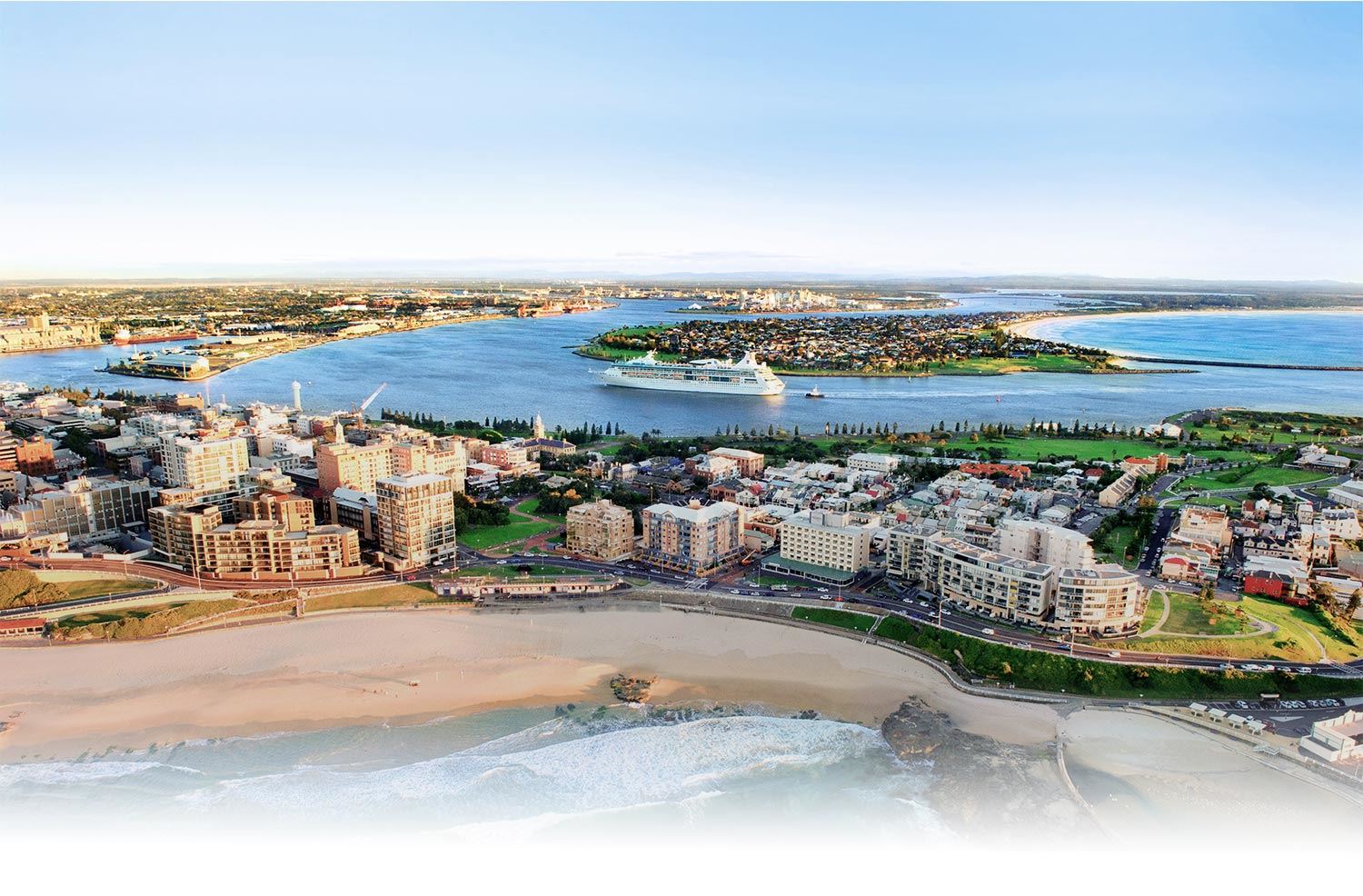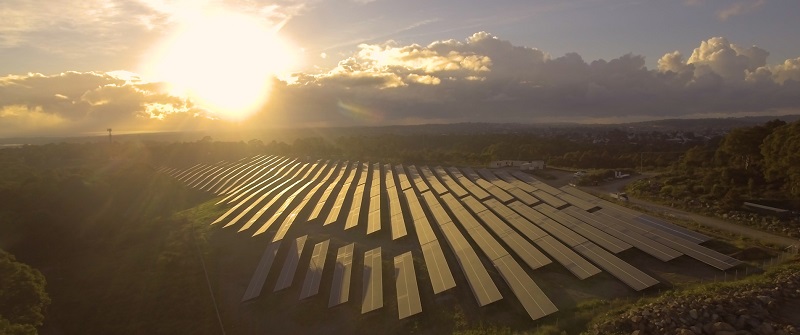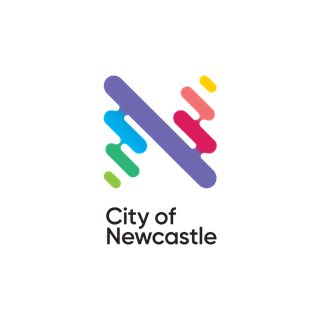
Solar farm powering City operations and revenue
24 June 2020
City of Newcastle’s solar farm has exceeded expectations in its first six months of operation, generating almost twice the revenue it was expected to make annually.
The five-megawatt solar farm installed at the Summerhill Waste Management Centre generated more than $420,000 in revenue between when it went live in mid-November and the end of April, well above original forecasts used in the business case’s projected average of $250,000 a year.
 The Summerhill Solar Farm at dawn.
The Summerhill Solar Farm at dawn.
Selling energy back into the electricity market, the solar farm further demonstrated its value during the January bush fires when the City supported the state’s damaged energy grid as a net exporter.
A renewable power purchase agreement with a wind farm that came into effect on 1 January, making the City the first NSW Council to be powered 100 per cent by renewables, saved a further $30,000.
“The business case showed the solar farm would save rate payers around $9 million, after costs, over its 25-year lifespan - and so far, it’s on track to do even better,” Newcastle Lord Mayor Nuatali Nelmes said.
“The solar farm helped us exceed our renewable energy goals under the Newcastle 2020 Carbon and Water Management Action Plan, which targeted 30 per cent of our electricity needs from low-carbon sources.
“By combining solar installations, battery storage and the purchase agreement to power all our operations, the City has created a resilient energy strategy that will protect us from future electricity price spikes.
“Working in concert with the power purchase agreement, these investments give us price stability, create financial savings for rate payers and have already enabled us to reduce our operational carbon emissions by 77 per cent, compared to the 2008 baseline.”
The Climate Council’s Cities Power Partnership Director David Craven said the solar farm was a “fantastic accomplishment by the City of Newcastle”.
“They have again stepped up as leader in renewables and as a leader amongst local governments taking significant action on climate,” Mr Craven said.
“Renewable energy is the cheapest form of new energy generation and is proving to save Novocastrians millions, while creating a healthy future for this community.”
The City is also paving the way to an electric transport future by converting fleet vehicles to electric and installing an electric vehicle charging network powered by solar panels and battery storage.
Meanwhile, the City is increasing solar-energy generation on its buildings.
“We recently added an additional 100-kilowatt roof top photovoltaic system to our Waratah Works Depot, doubling the capacity of the system installed onsite in 2013 and taking total generation of our 12 solar systems to almost 9 million kilowatt hours of renewable energy each year,” Councillor Nelmes added.
“Our five-megawatt solar farm and over 660 kilowatts of rooftop solar provide the equivalent energy needs of more than 1,770 Newcastle households a year with clean, renewable energy.”
For its commitment to renewables and reducing carbon emissions, the City won the prestigious Local Government Sustainability Award in 2019 and is currently a finalist for Environmental Leadership and Sustainability in the 2020 NSW Local Government Excellence Awards.











